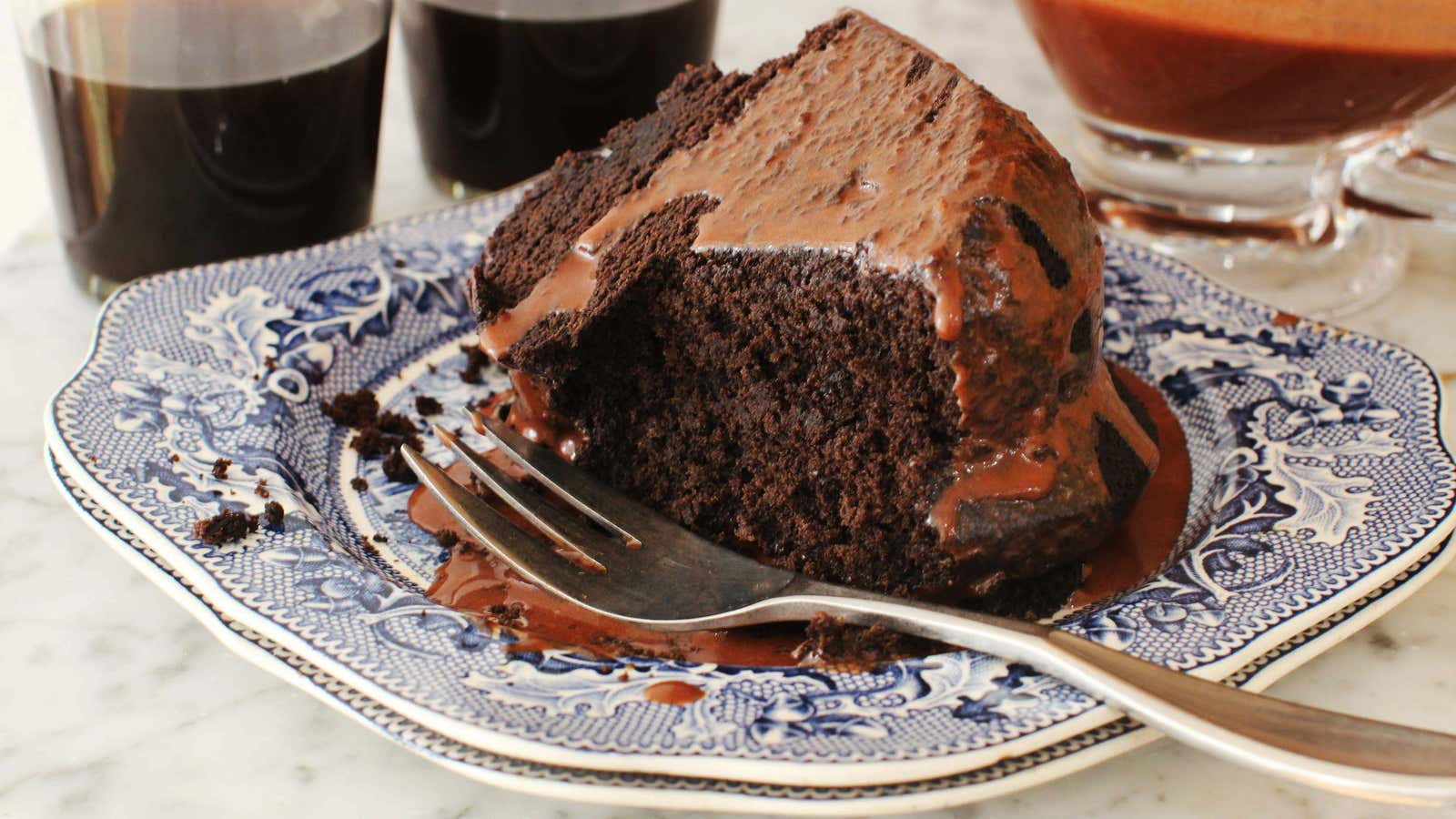Chocolate studies have often been woefully misleading, including last year’s disappointing discovery that a study linking chocolate consumption to weight loss was a fake. But there’s a bright spot amid all the misinformation: A little bit of the dark stuff, it turns out, is good for your brain.
People who eat chocolate once a week are more likely to do well on cognitive measures, including organization, abstract reasoning, and visual memory, according to research published (paywall) online last month in the journal Appetite. To draw these conclusions, researchers from the University of South Australia, the University of Maine, and the Luxembourg Institute of Health examined data from a cohort of nearly 1,000 individuals aged 23-98.
The researchers were using data from the Maine-Syracuse Longitudinal Study, which was started in 1976 and originally designed to follow participants and track heart disease and cognitive abilities. Researchers collected information about participants’ health in different groups based on time, but for a sample of adults in 2001 to 2006 group, they also collected dietary information. After categorizing chocolate consumption by less than once a week, once a week, and more than once a week, they reported that people who consumed chocolate at least once per week boasted lower rates of hypertension and type 2 diabetes. Furthermore, they wrote, “all cognitive scores were significantly higher in those who consumed chocolate at least once per week, than in those who never/rarely consumed chocolate.”
As Georgina Crichton, a nutrition researcher at the University of South Australia and lead author of the study, told the Washington Post, these chocolate-enhanced cognitive abilities translate into the things we do every day, like recalling trivia and multi-tasking.
But does chocolate actually have an effect on cognitive abilities, or do people with sharper minds simply tend to consume more chocolate? To answer that question, the researchers looked at 333 individuals whose cognitive capacities had been tested an average of 18 years before they were surveyed about their dietary habits. The researchers found that people with high cognition were no more likely to be chocolate-eaters than people with lower cognitive. In other words, mental capacity couldn’t predict chocolate habits.
“Our study definitely indicates that the direction is not that cognitive ability affects chocolate consumption, but that chocolate consumption affects cognitive ability,” Merril F. Elias, a psychologist at the University of Maine and co-author of the study, told the Post.
But this doesn’t mean that you should substitute chocolate for crossword puzzles and other cognition-honing tools. Instead, Elias advises that it’s probably best to have just a little bit of chocolate here and there—more like a supplement to brain food, rather than the main dish.




